Covid inquiry: is it working?
Struggling under the weight of expectation questions have been raised about its focus
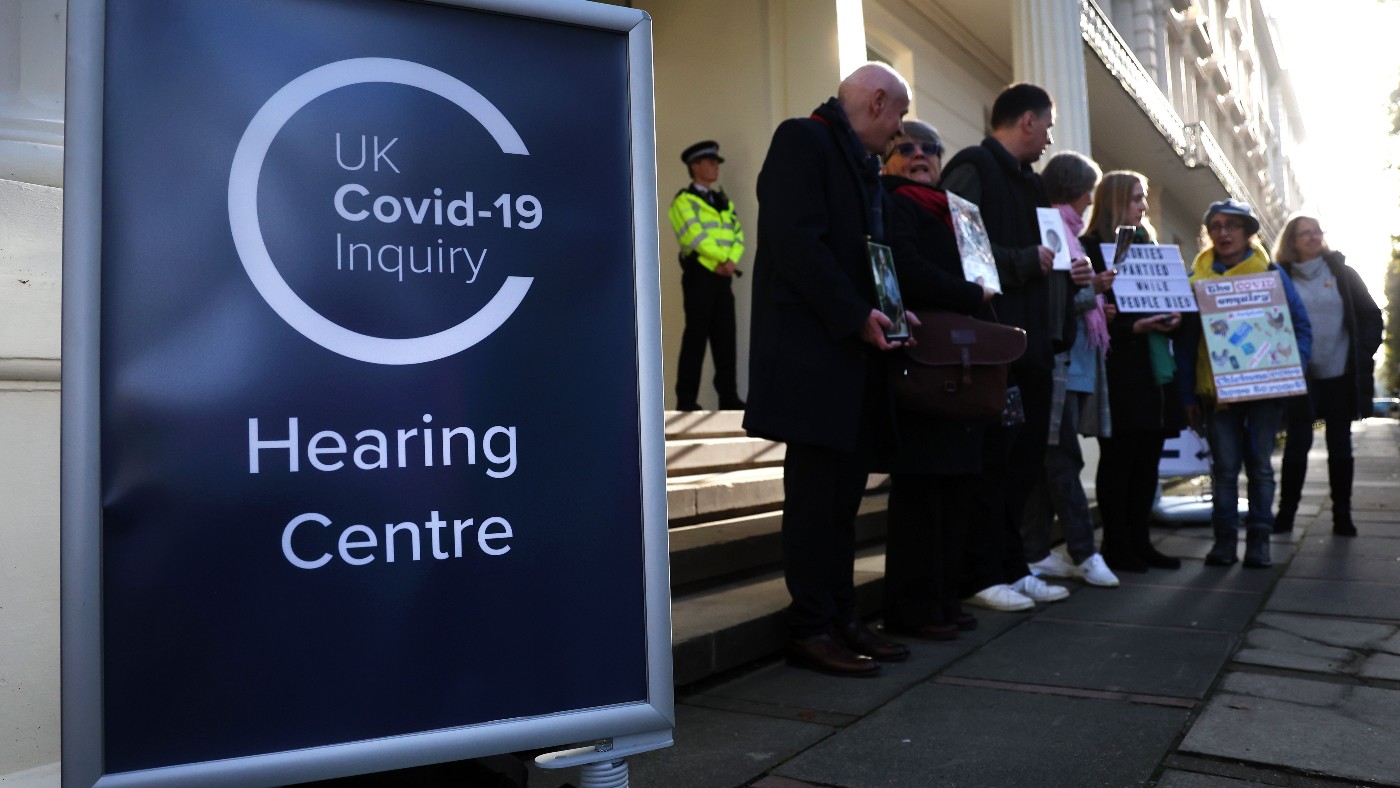
The Covid Inquiry heard more evidence of Downing Street indecision over lockdown policies this week.
According to diaries kept by Patrick Vallance, the government's chief scientific adviser at the time, Boris Johnson was "all over the place" as to whether to impose a lockdown in October 2020, and Rishi Sunak used "spurious" arguments against one. Separately, Johnson's ex-chief of staff, Edward Udny-Lister, confirmed that the PM wanted to be injected with Covid on live TV to prove the virus wasn't dangerous, and said he'd rather "let the bodies pile high" than lock the country down in September 2020.
Last week, former deputy cabinet secretary Helen MacNamara described a "toxic" culture in No. 10, and said that a lack of diversity at a senior level may have led to women's deaths in the pandemic. The Inquiry also heard that Matt Hancock had said that, were the NHS to be overwhelmed, he wanted to decide who should live or die.
Subscribe to The Week
Escape your echo chamber. Get the facts behind the news, plus analysis from multiple perspectives.

Sign up for The Week's Free Newsletters
From our morning news briefing to a weekly Good News Newsletter, get the best of The Week delivered directly to your inbox.
From our morning news briefing to a weekly Good News Newsletter, get the best of The Week delivered directly to your inbox.
'Evidence does matter'
British governments are "addicted to public inquiries", said The Times – and this one is a whopper. Its vast scope ranges from "national resilience" to the impact of the pandemic on business and health inequalities. "Like a latter-day Jarndyce vs. Jarndyce", it's due to "grind on" until 2026. But while it has given the media plenty to chew on, including a stream of "expletive-laden WhatsApps" chronicling the chaos at No. 10 early in the pandemic, it has so far failed to focus on what really matters: "what did and did not work during the pandemic, and how the country can better prepare itself for a similar crisis in future".
Actually, the evidence we have heard thus far does matter, said The Guardian. It matters that Britain was ill-prepared for a pandemic – and that the much-vaunted plan turned out scarcely to exist. It matters that the then-PM "was not on top of the detail" and that those taking vital decisions were consumed by "bitter rivalries". But in any case, this part of the Inquiry is explicitly about political decision-making; subsequent modules will examine other aspects of Britain's pandemic response.
'Focus on political psychodrama is distracting'
The Covid Inquiry has laid bare the rot at the heart of Johnson's government, said Andrew Rawnsley in The Observer. It has heard extensive evidence of Johnson's "ridiculous flip-flopping"; of the then-PM asking whether people with Covid could kill the virus by blasting a hairdryer up their nose; and of then-health secretary Matt Hancock adopting a batsman's stance to indicate that he was "loving the responsibility" of a job in which he was flailing ("They bowl them at me, I knock them away"). So ugly was the culture in No. 10 that Johnson himself described it as a "disgusting orgy of narcissism" – which is "like Caligula moaning that he can't stand the sight of blood". The treatment of MacNamara was especially appalling, said Judith Woods in The Daily Telegraph. This senior civil servant repeatedly warned that the government's Covid policies lacked "humanity", highlighting concerns such as the heightened risk of domestic abuse in lockdown. Yet the macho culture prevailed, with Johnson's ex-aide Dominic Cummings saying he was fed up with "dodging stilettos from that c**t", and wanted to "handcuff" her.
The problem with this Inquiry, said Jonathan Sumption in The Sunday Times, is that it "cannot decide whether it is there to learn lessons for the future or distribute blame for the past". Yes, it has revealed the "nastiness" of Johnson's circle, but the adversarial nature of the process (even some witnesses are lawyered up) is ill-suited to getting to the heart of a complex subject. Worse, it shows no sign of probing the fundamental question of whether the pandemic restrictions were worth the sacrifices they entailed: of the six modules announced so far, none directly addresses "the efficacy of lockdowns, masks, travel bans" and so on. The Inquiry must consider all of the pandemic's victims, said Camilla Cavendish in the FT: from children who missed school to patients who died from other causes because they avoided the NHS. The focus on the political "psychodrama" distracts from the main point of this expensive exercise.
A free daily email with the biggest news stories of the day – and the best features from TheWeek.com
-
 Israel: Losing the American public
Israel: Losing the American publicFeature A recent poll finds American support for Israel's military action in Gaza has fallen from 50% to 32%
-
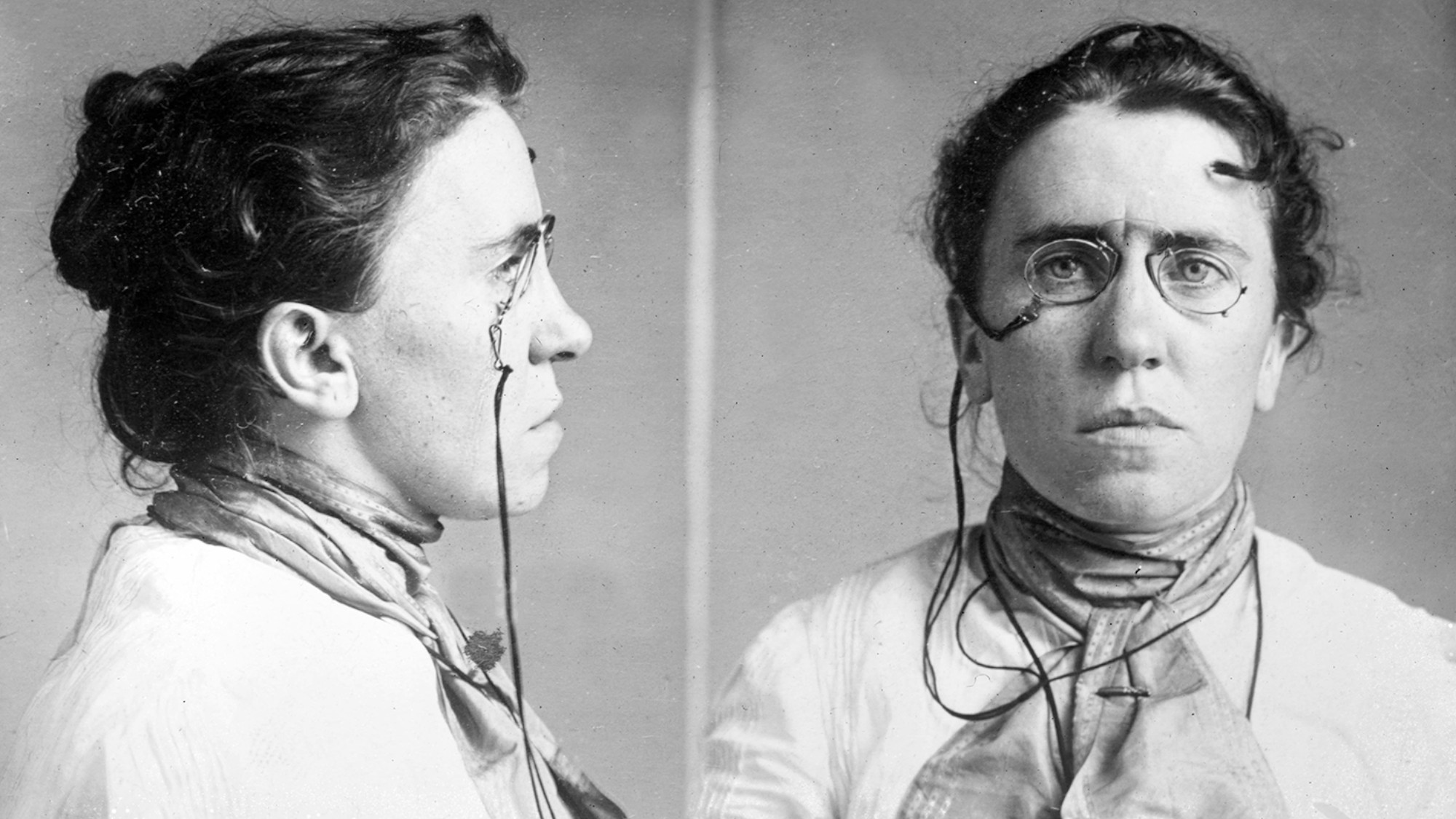 Unmaking Americans: Trump aims to revoke citizenship
Unmaking Americans: Trump aims to revoke citizenshipFeature Trump is threatening to revoke the citizenship of foreign-born Americans. Could he do that?
-
 EPA: A bonfire of climate change regulations
EPA: A bonfire of climate change regulationsFeature The Environmental Protection Agency wants to roll back its 'endangerment finding,' a ruling that lets the agency regulate carbon emissions
-
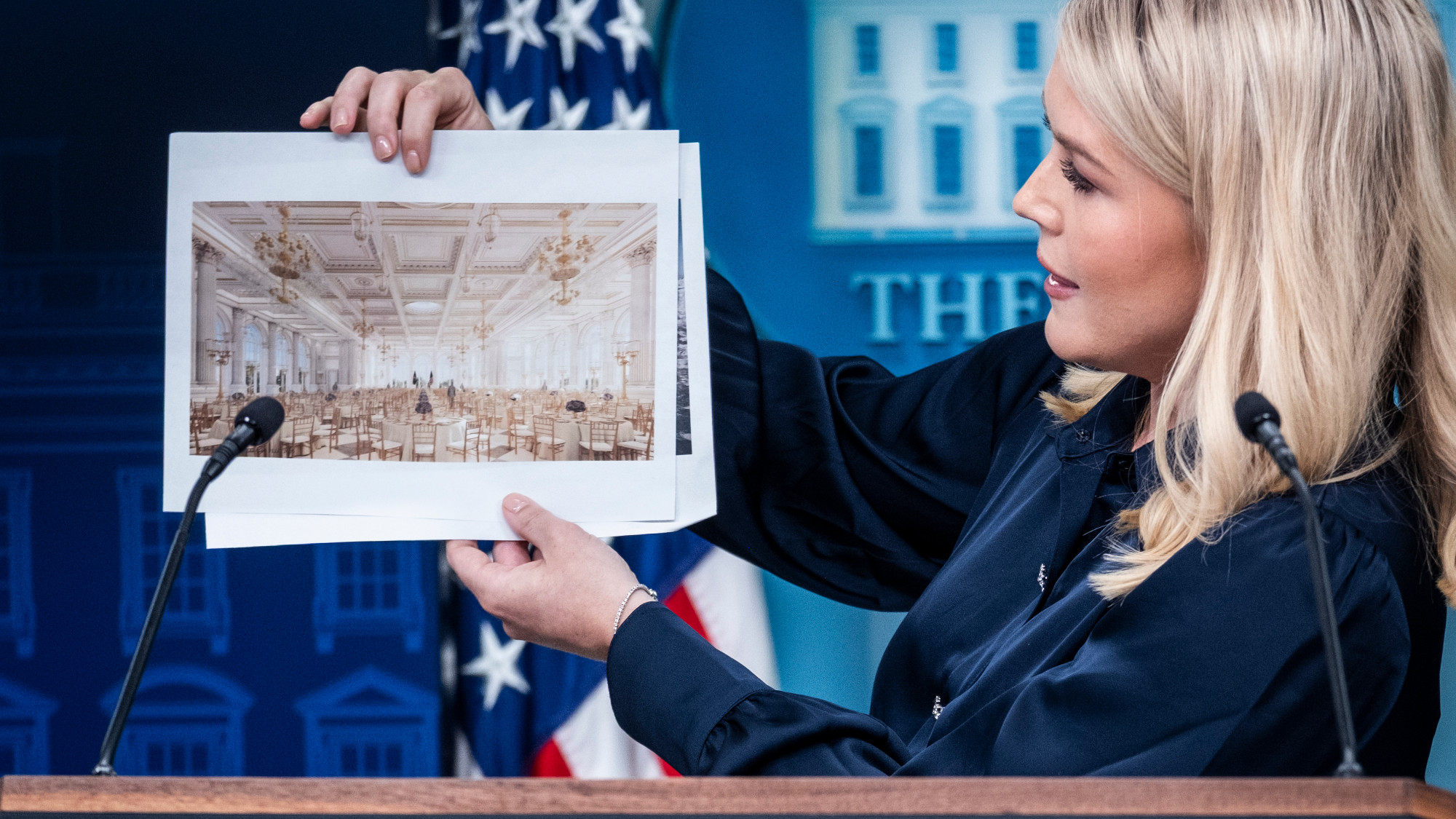 Trump: Redesigning the White House
Trump: Redesigning the White HouseFeature Donald Trump unveiled a $200 million plan to build a White House ballroom
-
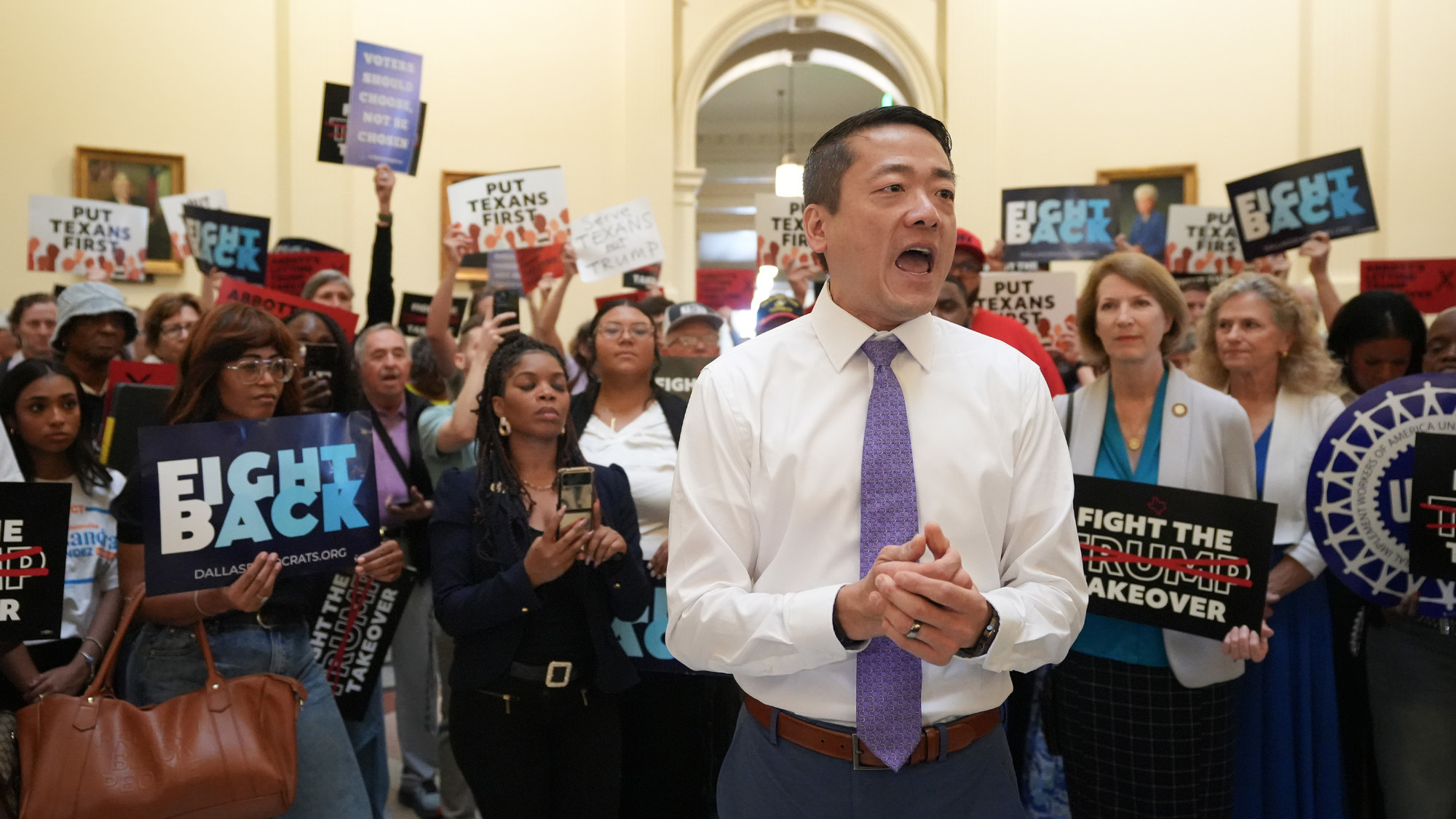 Texas gerrymander battle spreads to other states
Texas gerrymander battle spreads to other statesFeature If Texas adopts its new electoral map, blue states plan to retaliate with Democrat-favored districts
-
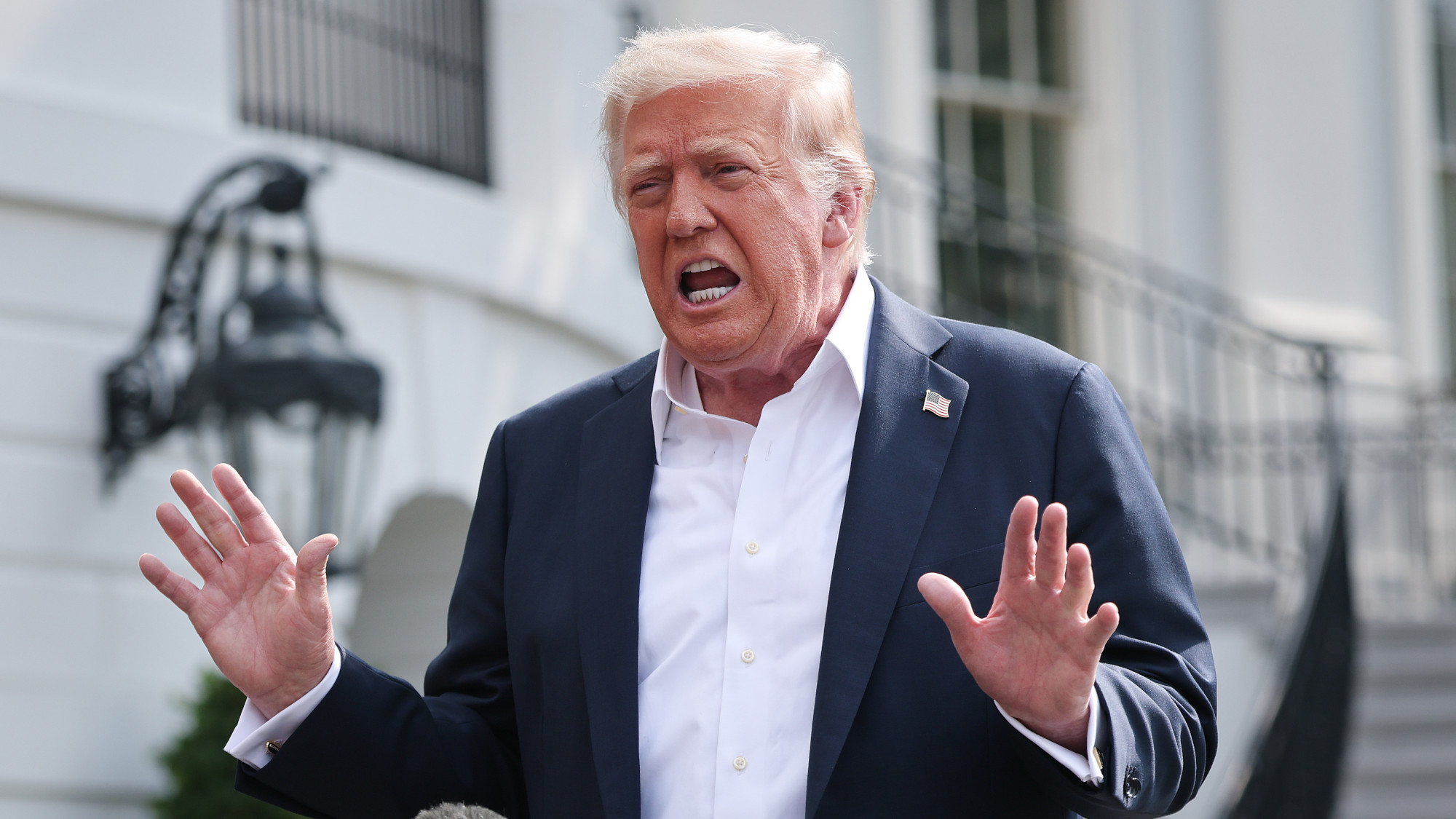 Trump hikes tariffs despite economic warning signs
Trump hikes tariffs despite economic warning signsFeature Donald Trump signed an executive order raising import taxes to the highest level in over a century, as U.S. job growth continues to lag
-
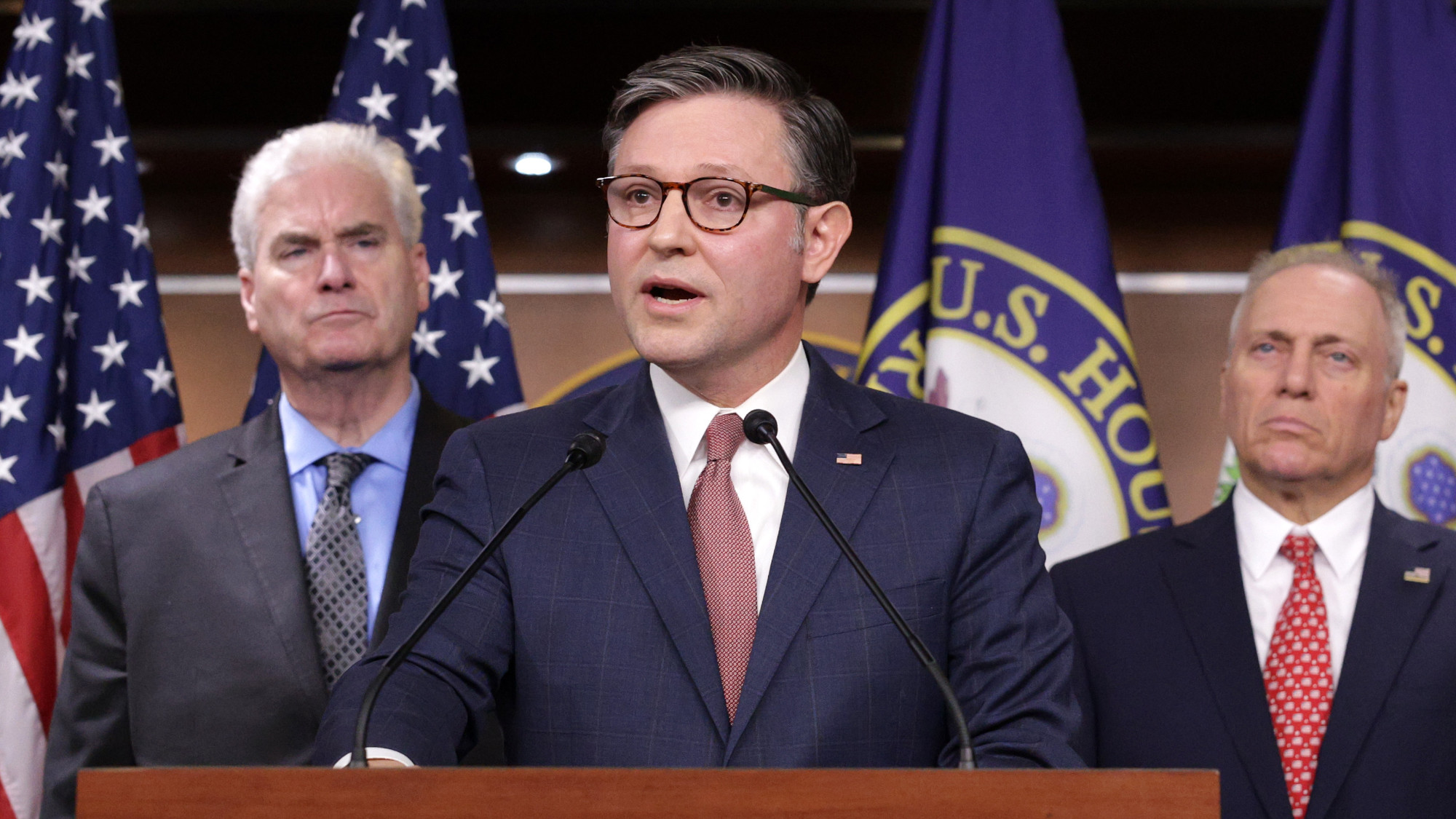 Epstein: A boon for Democrats?
Epstein: A boon for Democrats?Feature Democrats' push to release the Epstein files splits the GOP, sending the House into an early summer recess
-
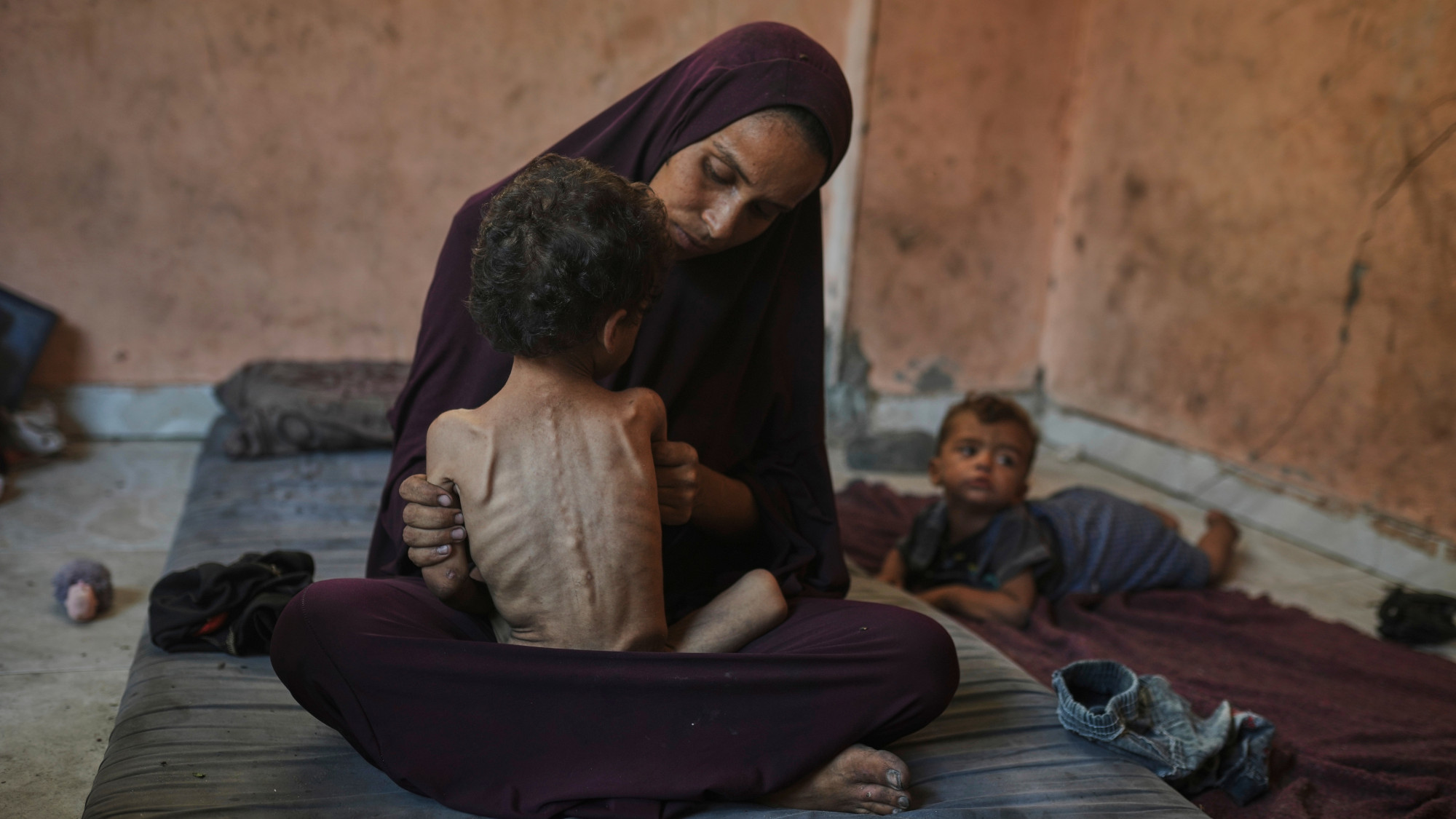 Israel faces international anger as Gazans starve
Israel faces international anger as Gazans starveFeature World leaders pressure Israel to let in aid as famine spreads across Gaza

